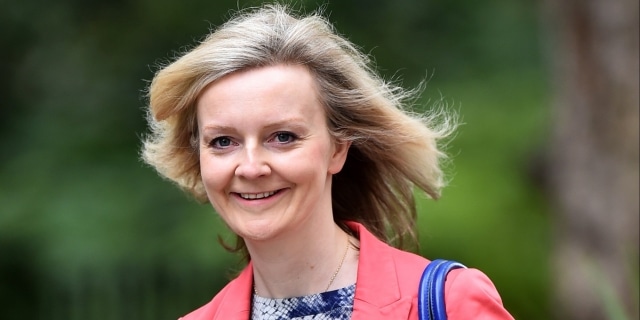Environment secretary Liz Truss scrapped solar subsidies in favour of biomass despite years of working to cut subsidies to biomass, documents reveal.
The Department for Environment, Food and Rural Affairs (Defra) secretary has been a vocal opponent of solar subsidies since she entered office last July, citing concerns over losing land for grazing and crops, as well as driving food production overseas.
But documents obtained by DeSmog UK under the Freedom of Information Act (FOIA) show that Truss voiced the exact same concerns about biomass production long before her appointment as environment secretary.
Costs to the Taxpayer
In a September 2012 letter to Owen Paterson, the environment secretary at the time, she wrote: “I am worried that the tax payer is subsidising an industry which will create an unnatural imbalance in the market place that will ultimately cost the consumer more at the till.”
This revelation comes after news that Truss recently spent more than £34,000 of taxpayers’ money on first-class flights and five-star hotels while on a six-day trip to China promoting British food.
Truss also claimed in her letter to Paterson that biomass subsidies were increasing the price of straw – used as bedding for pigs – which was subsequently putting pig farmers out of business. “It is a cause of concern that this will cause pig farmers to sacrifice welfare standards, and drive trade to overseas producers,” she wrote.
In a follow-up meeting between Truss and Paterson on 7 January 2013, Paterson suggested that Truss speak with the Department of Energy and Climate Change as well as ministers at the Treasury about subsidy levels.
Solar Criticisms
Truss’s statements echo her criticisms of solar power. When announcing her plans to scrap solar subsidies to farmers last October she said the “ugly” panels were pushing production of meat and produce overseas.
“I am committed to food production in this country and it makes my heart sink to see row upon row of solar panels where once there was a field of wheat or grassland for livestock to graze,” she said at the time.
Yet, under her leadership, Defra chose only to cut subsidies to solar power not biomass. The aim was to ensure farmland is dedicated to growing crops for food and biomass production.
This is despite Defra having no data to prove that British food security is being harmed by the spread of solar panels in the countryside, as Truss has argued.
Documents revealed by the Guardian last week show that environment department officials have admitted they have no idea how much they will save in agricultural subsidies through the changes and that the claim that solar power is harming food production does not stack up.
Biomass Doubts
These documents also reveal Defra’s hesitation towards biomass. As one email states: “Biomass from a policy perspective are [sic] not really considered a better option either if they cause land use change away from more typical crops.”
In another email with the subject line “Solar v other land influences” Defra states that “Biomass crops may still receive BPS [Basic Payment Scheme subsidies] as on cultivatable [sic] land and they require ten times (?) [sic] the land area of solar for equivalent energy.”
It continues: “Might [this] be seen as more significant to food production and future food security than Solar?”
So the question remains: if Defra believes biomass is not a better option than solar, and Liz Truss has previously lobbied Defra to end biomass subsidies, why were solar subsidies the only ones cut?
DeSmog UK contacted Defra for a comment from Liz Truss but she had yet to respond at time of publication.
Photo: Google Creative Commons
Subscribe to our newsletter
Stay up to date with DeSmog news and alerts






